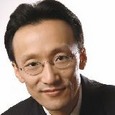One of the qualities that I see in patients that are highly successful at managing their sleep apnea condition is their ability to surround themselves with a team of trusted advisors. This can include a sleep doctor, a dentist, an ENT surgeon, a CPAP equipment specialist, and their medical doctor. Since there's no comprehensive sleep apnea center that incorporates all these specialists such as what we have for cancer, this is the next best alternative.
Regardless of how you were diagnosed or which doctor you were diagnosed by, eventually, you'll need to interact in the future with one or more of the above mentioned people. What I'll describe below are the roles that each specialist can play and how to make the best use of their skills and expertise towards helping you achieve your dreams (literally).
The sleep medicine doctor is typically a fellowship trained, board certified physician or PhD that interprets your sleep study results, as well as help manage all the medical aspects of your various sleep conditions. Although obstructive sleep apnea is the most common condition that's seen, they also deal with various other sleep issues such as sleepwalking, night terrors, and limb movement disorders. The American Board of Sleep Medicine was recently reorganized and is now jointly sponsored by the fields of pulmonology, psychiatry, neurology, ENT, and pediatrics. Anyone certified in these fields, or PhDs in health related fields can undergo further training and become certified in sleep medicine.
Dentists are now an integral part of any sleep medicine team. They have a unique perspective and understanding of sleep-breathing problems, as well as facial pain, headaches and TMJ issues, as they are all related to abnormalities of jaw formation and position. Dentists can make mandibular advancement devices which pulls the lower jaw forward, opening up the space behind the tongue. The American Academy of Sleep Medicine recently stated that CPAP and oral appliances are equally first line options for people with mild to moderate obstructive sleep apnea. Certain dentists are members of the American Academy of Dental Sleep Medicine, and specialize in making these type of devices.
Orthodontists and oro-maxillo-facial surgeons may also be called in to help. Young children with various bite deformities may benefit from rapid palatal expansion (RPE), and oral surgeons are able to perform maxillo-mandibular advancement, which has a 90-95% chance of success treating obstructive sleep apnea.
An ENT surgeon (or otolaryngologist - head & neck surgeon) is responsible for managing the medical and surgical aspects of the upper airway. In appropriate situations, ENTs can help open various areas of obstruction, especially clogged or stuffy noses. They also perform palatal and tongue base procedures for people who can't tolerate CPAP or dental devices. Different ENTs have various levels of expertise in dealing with sleep apnea surgery.
If you use CPAP, it's important to have a good relationship with the CPAP durable medical equipment vendor. These are the people in the front lines, dealing with routine matters regarding your CPAP, such as technical issue, compliance, and equipment.
Last, but not least, your medical doctor should be involved and coordinate your sleep apnea condition as part of a comprehensive approach to your medical care.
It's also important to bring in other health-related professionals when necessary, such as nutritionists, fitness trainers, yoga teachers, and others.
No matter what type of medical problem you have, you can't do everything on your own. It may take some time and a lot of patience, but eventually you'll find professionals that can not only help you manage and control your sleep apnea condition, but also help you literally to dream again.
Besides CPAP or oral appliances, one option that's not very well understood is surgery for sleep apnea. For a free report on "The Truth About Obstructive Sleep Apnea Surgery," go to http://www.thetruthaboutosasurgery.com Dr. Steven Y. Park is an otolaryngologist and author of Sleep, Interrupted: A physician reveals the #1 reason why so many of us are sick and tired. It was endorsed by New York Times best-selling authors Christiane Northrup, M.D., Dean Ornish, M.D., Mark Liponis, M.D., Mary Shomon, and many others. http://www.sleepinterrupted.com

Post new comment
Please Register or Login to post new comment.